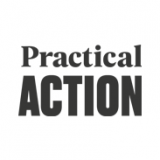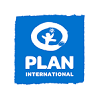Background
The current global approach to addressing climate change often fails to tackle its structural roots, particularly the intersection of capitalism, patriarchy, and systemic inequities. These solutions disproportionately impact marginalized groups, especially women and young people, while leaving those most responsible for the climate crisis—extractive industries and corporations—largely unaccountable.
The climate crisis exacerbates gender inequalities, with women bearing the brunt of its effects due to their roles in caregiving, agricultural labor, and community sustenance. Women are often excluded from decision-making processes around land ownership, natural resource management, and climate-related solutions. Young urban women face additional challenges, including economic insecurity and precarious work conditions, compounded by climate-related shocks. However, women have consistently been at the forefront of advocating for climate justice and sustainable practices.
This research seeks to explore the intersections of climate justice and women’s economic rights and justice, highlighting how young urban women are navigating these challenges and contributing to solutions.
Objectives
This project will work collaboratively with Young Urban Women (YUW) researchers from Ghana, Kenya, Malawi, and South Africa to:
- Analyze the Impact: Identify the differentiated impacts of the climate crisis on YUW, with a focus on their economic rights and justice.
- Document Coping Mechanisms: Understand how YUW manage the effects of climate change on their paid and unpaid care responsibilities.
- Explore Policy and Practice: Identify opportunities for advancing women’s economic justice through local, national, and international mechanisms.
- Map Solutions: Highlight grassroots feminist strategies for mitigation and adaptation, such as agroecology and other climate-responsive initiatives.
- Identify Stakeholders: Map Women’s Rights Organizations (WROs) and feminist organizations working at the intersection of climate justice and economic rights.
Methodology
The research will employ a participatory approach led by YUW researchers. Proposed methods include:
- Desk-Based Research: Review existing literature on climate justice, economic rights, and feminist frameworks.
- Key Informant Interviews (KIIs): Conduct interviews with organizational representatives, young urban women, and other stakeholders.
- Focus Groups: Facilitate discussions with young urban women to gather diverse perspectives.
Collaborative Analysis: Engage participants in co-analyzing findings to ensure relevance and accuracy.
Deliverables
- Comprehensive Report: A 30–40-page document (excluding annexes) containing:
Section 1: Intersectional analysis of climate justice and women’s economic rights.
Section 2: Mapping ecofeminist theory, practices, and grassroots organizing efforts in the Global South. - Executive Summary: A 2–3-page summary for broader audiences.
- Visual Aids: Infographics and charts to present key findings.
- Recommendations: Actionable proposals for stakeholders to enhance women’s economic justice within the climate justice framework.
Timeline
The consultancy is estimated to take 20 days, starting from 29th January 2025. Specific
milestones and deliverable due dates will be agreed upon during the inception phase.
Qualifications of YUW Researchers
Age: 18–30 years old, prioritizing young urban women from diverse backgrounds.
Educational Background:
- Diploma or degree in Social Sciences, Environmental Studies, Gender Studies, or related fields (or equivalent experience).
- Practical experience and knowledge about climate justice and economic rights are prioritized.
- Certifications or training in relevant areas are an added advantage.
Experience:
- Active participation in advocacy or activism related to women’s economic rights, climate justice, or feminist movements.
- Experience in community-based initiatives or grassroots organizing.
Skills:
- Basic research skills, including data collection and analysis.
- Strong written and verbal communication.
- Familiarity with tools such as Google Workspace or MS Office.
- Diversity: Representation from marginalized groups, including those with lived experiences of systemic oppression.
Budget:
The budget for this research should include all costs associated with data collection,
research, analysis, stakeholder consultations, report writing, and presentation of findings. The
budget should be inclusive of any travel, accommodation, and other logistical expenses.
Expectations and Support
- Selected researchers will receive mentorship and technical support throughout the project.
- Capacity-building sessions will be organized to enhance research and analysis skills.
- A stipend will be provided to cover costs associated with research activities.
By centering young urban women in this research, we aim to amplify their voices, insights, and leadership in shaping feminist solutions to the climate crisis. Let’s co-create a transformative path towards climate and economic justice.
To apply, YUW members, Activista and CampusMeToo members should send their CV and a cover letter to [email protected] . The cover letter should address:
- Motivation for joining the project.
- Contributions to the research process.
- Alignment of the project with ongoing work or advocacy efforts.
Deadline for Applications: Tuesday, 21st January 2025





